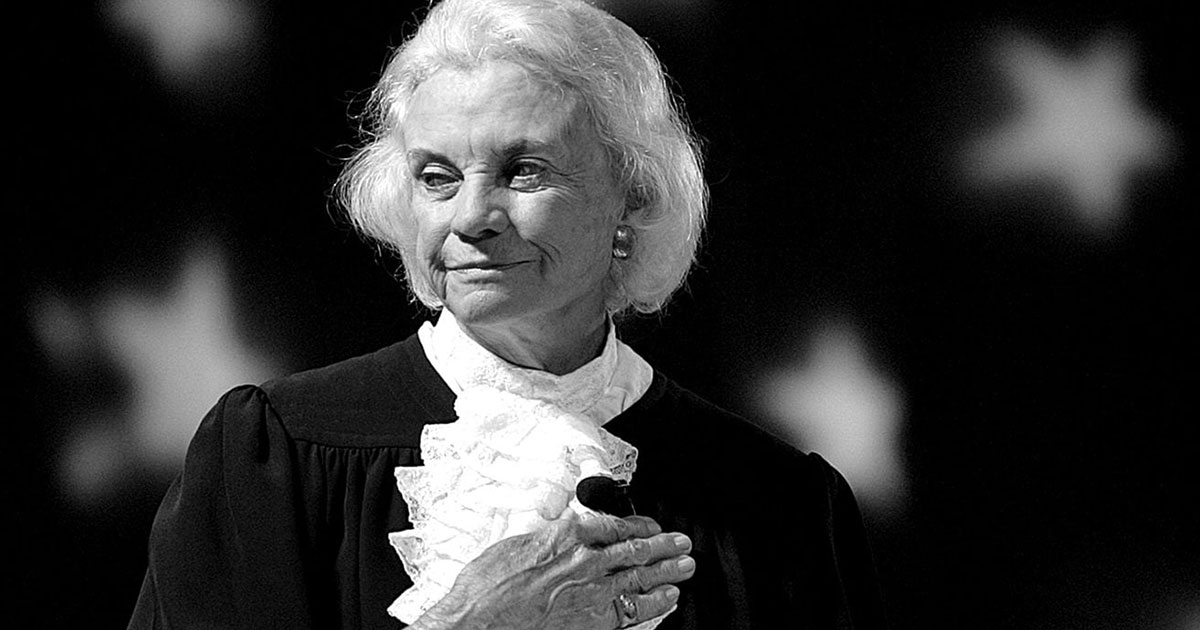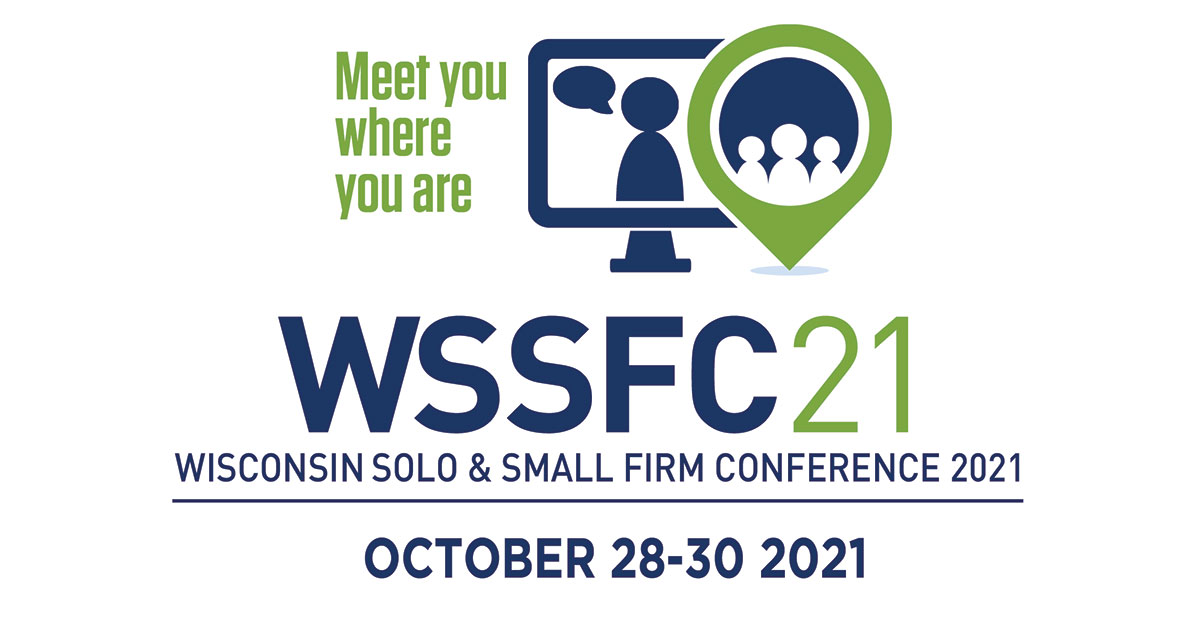Quotable
“Public service marks the difference between a business and a profession.”

– Former U.S. Supreme Court Justice Sandra Day O’Connor, in an article titled Professionalism, 78 Or. L. Rev. 385, 391 (1999).
“While a business can afford to focus solely on profits, a profession cannot,” she wrote. “It must devote itself first to the community it is responsible to serve. I can imagine no greater duty than fulfilling this obligation. And I can imagine no greater pleasure.”
National Pro Bono Week is Oct. 24-30. Want to get involved? Look for opportunities at the State Bar of Wisconsin’s pro bono page, wisbar.org/forMembers/ProBono.
On the Radar
Guidance on Alternative Business Structures

Last month, the American Bar Association released a formal opinion relating to alternative business structures (ABS) and the interplay with the ABA Model Rules of Professional Conduct, which many states look to in drafting state-based rules.
In a press release, the ABA noted that Arizona and Utah have modified ethics rules to permit business structures that allow nonlawyer ownership of law firms and fee sharing between lawyers and nonlawyers.
“With other states considering changes in their regulatory structure, Formal Opinion 499 outlines how ABA Model Rules of Professional Conduct would affect a lawyer’s ‘passive investment’ in an ABS enterprise; or, in the case of Utah, an entity approved under the state’s ‘sandbox’ in which the Utah Supreme Court approves a project that includes nonlawyer equity in a business that provides legal services,” the press release states.
“A lawyer admitted to practice law in a Model Rule jurisdiction may make a passive investment in a law firm that includes nonlawyer owners operating in a jurisdiction that permits such investments provided that the investing lawyer does not practice law through the ABS, is not held out as a lawyer associated with the ABS and has no access to information protected by” other model rules, the formal opinion notes.
Wisconsin bars nonlawyer ownership in law firms and fee-sharing under Wisconsin Supreme Court Rule 20:5.4 to preserve the lawyer’s independence.
Source: ABA
Got a Nugget to Share?
Send your ideas for interesting facts, trends, tips, or other bits and bytes to wislawmag@wisbar.org, or comment below.
By the Numbers
23
– Wisconsin’s score in a ranking of states’ laws that protect internet privacy, based on 22 key criteria.
The scores range from 9 to 77. California was the top-ranked state for internet and data privacy, at 77.
Some criteria included data broker and disposal laws, laws protecting internet-of-things data, insurance data security, social media privacy laws, and laws to protect k-12 students specifically.
Illinois led the Midwestern states with a score of 45. Minnesota, Wisconsin, and Indiana had scores of 23.
The report from CompariTech noted that only six states have laws that govern the use of artificial intelligence, and 70 percent of states have motor-vehicle departments or divisions that share photos with federal agencies, such as the FBI.
Good Idea
Recycle Your Work Product

You are already writing briefs and memos and doing legal research. Why not use this work product as marketing content for your firm?
Theda Snyder, writing for Attorney at Work, has some tips to make this work:
After you have put in the work to create a legal document, edit it for your email marketing newsletter. That entails scrubbing client identifying information and any secret strategies.
Post that same content to the firm’s blog. Assuming you have not made that blog private, now the world (and Google) can see your content.
Post links to your newsletter and blog posts on the social media platforms you frequent.
Recycle your blog post. Snyder suggests Medium.com, but blog posts can be recycled on other platforms too, including WisLawNOW, a hub for Wisconsin legal bloggers.
Snyder also suggests publishing your article in a law journal or bar publication.
The State Bar of Wisconsin has many publishing vehicles for attorneys, including Wisconsin Lawyer, Inside Track, and numerous section blogs. To learn more and to contribute, visit wisbar.org/NewsPublications/Contribute.
Tech Tip
Attend the Wisconsin Solo & Small Firm Conference!

This is the best tech tip you’ll receive this year: Attend the Wisconsin Solo & Small Firm Conference (WSSFC), a virtual event taking place Oct. 28-30.
An entire track of sessions is devoted to technology, and another track is on practice management. The opening plenary session is on the dark web and what lawyers should know. There’s also a session on Microsoft 365, one of the most commonly implemented productivity tools in law firms.
Other sessions provide insights on protecting digital assets, working remotely, incorporating the power of PDFs in your law practice, and cyber liability insurance.
Plus, the ever-popular “50 Tech Tips in 50 Minutes” is back. That’s just the technology track!
There have never been so many tech tips in one place. See the full schedule at wssfc.org.
Out There
Weird Halloween Laws to Make You Cackle

Our friends at Johns, Flaherty & Collins S.C in La Crosse published an article titled Weird Halloween Laws to Make You Cackle.
As Halloween fast approaches, we highlight a few of them.
In Newport News, Va., teens cannot trick or treat. It’s a class 4 misdemeanor with a fine of up to $250.
In Hollywood, Cal., it’s illegal to sell, distribute, possess or use Silly String in public from Halloween through noon on Nov. 1.
In Alabama, you could be fined $500 and sent to the slammer if you dress up like a nun, priest, minister, or other member of the clergy – any time of the year, including Halloween.
In Vendargues, France, clown costumes are outlawed for the Halloween holiday and throughout November.
